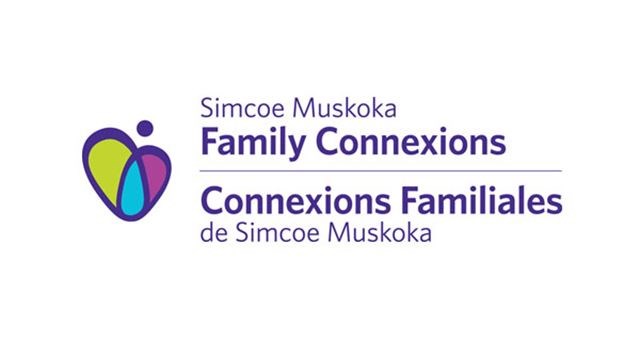On a day that in its 10 years has become a very successful method for breaking the silence about mental health, Simcoe Muskoka Family Connexions (SMFC) wants to keep the conversation going and make sure families in Muskoka know the services available locally for those that need them.
“We are the local provider of child and youth mental health services in the Muskoka region,” says Jocelyn Wing, Manager of Services for Child &Youth Mental Health Programs. “But, many people don’t know all the programs we offer – and as we add new ones we want to continue to get the word out.”
On Bell Let’s Talk Day, which happens every year on January 29, Bell donates 5¢ for every applicable social media mention of the day. Over the last decade, they have provided $15.7 million dollars in funding to child and youth mental health programs, including the local walk-in clinics in Bracebridge and Huntsville that SMFC offers on Tuesdays and Thursdays.
Back in 2012, SMFC was one of 60 agencies from across the country to receive a Let’s Talk grant to launch its Counselling Walk-In Clinic (CWIC). Aimed at trying to combat the issue of growing waitlists for child and youth mental health services, the clinic continues today, offering no-fee same day therapy services for children and youth ages 0 to 18 years and their families in both their Bracebridge and Huntsville locations. At the time of the grant, the chair of the Bell Mental Health Initiative said the agency was chosen because it was making a difference at the grassroots level.
That grassroots, local approach persists as the agency is now working at expanding its service offerings with a new platform it hopes to launch in the coming weeks. Working together with Hands – TheFamilyHelpNetwork.ca, the lead agency for Child and Youth mental health in the Nipissing/Parry Sound/Muskoka region, they are creating a webchat service for youth seeking information about mental health concerns and/or someone with whom they can just talk. Based on feedback in focus groups from local youth, the goal is to provide more immediate attention to youth mental health concerns.
“The use of a web chat service has the potential to reduce the stigma that youth face when deciding what help they need,” says Wing. “We also hope that it will help with youth living in rural areas in Muskoka to have other ways to access services.”
Beyond the walk-in clinics and this new webchat, the agency provides crisis services through the 24-7 child and youth mental health crisis line where trained call-takers listen and connect people to the appropriate help. Local Crisis Clinicians are also available to provide support by phone or in-person, depending on the location and time of the call.
Families can also access child and family counselling and therapy services for short-term or long-term therapy, intensive mental health treatment services – in home and community support, and telepsychiatry consultation through remote access to a child and youth psychiatrist.
SMFC is proud of the work they are doing, but they are also dealing with the pressures of limited resources. Child and youth mental health continues to be a growing concern in our local community and across the province. Beyond talking, more action is needed to try to meet the growing needs of child and youth mental health in Ontario.
On Monday, Children’s Mental Health Ontario (CMHO) released their 2020 Report on Wait Lists and Wait Times for Child and Youth Mental Health Care. The report is raising alarm bells about wait times, which have more than doubled, just in the last two years. It also revealed wide and inequitable gaps in access to child and youth mental health care depending on where you live and what type of service you need.
The report also shows that wait times dramatically differ from region to region. There are currently just under 100 children waiting in Muskoka for service. When children wait too long for treatment there is a profound impact on families, the broader health care system, hospitals and schools. Treating mental health concerns early results in better outcomes overall for children and families as well as reduced emergency room visits and hospitalizations.
SMFC wants to continue the conversation about child and youth mental health and be able to have the programs and services available to children, youth and families when they need them.








